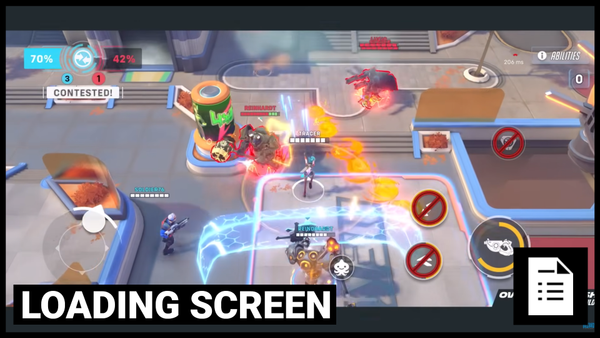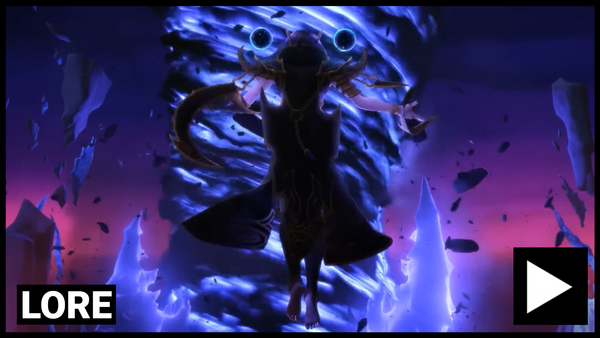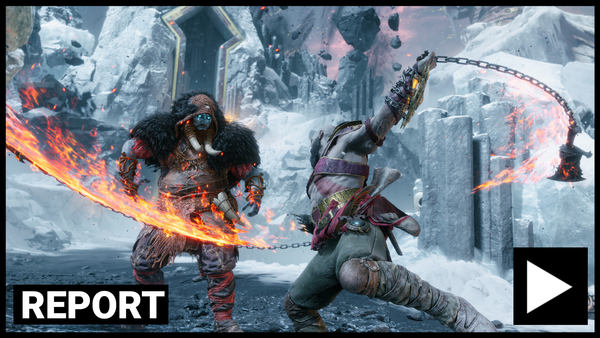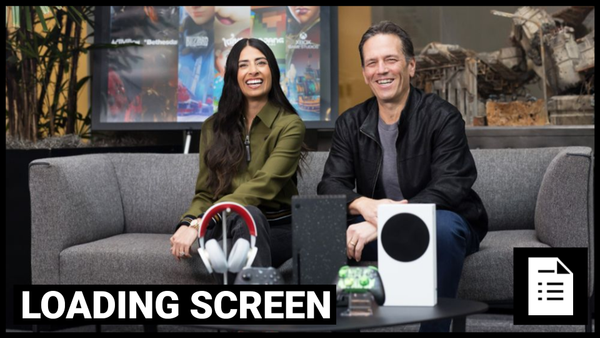Ubisoft + Interview = Outrage
Ubisoft have angered many this week with an interview on subscriptions - but seemingly they might actually agree with those audiences as the industry shifts towards a non-ownership model of games.
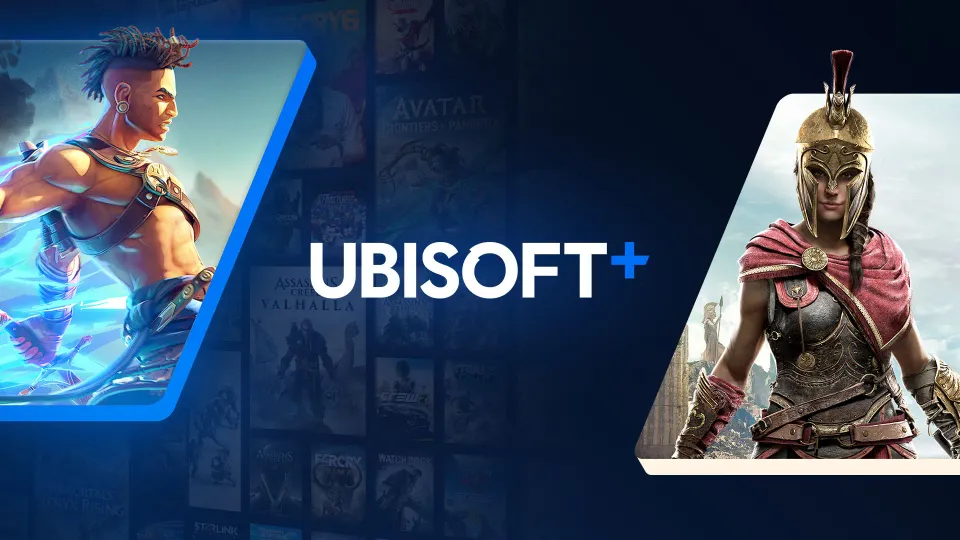
Everyone is mad at Ubisoft… again. Headlines and viral tweets told audiences that “Ubisoft Exec says Gamers Need to Get Comfortable With ‘Not Owning Your Games” - and audiences did not agree.
This was anti-consumer nonsense, a demand for audiences to give up on ownership, a sign of the rot at the heart of gaming! And also a good opportunity for folks to make jokes about already choosing not to buy Ubisoft games.
All of this came from an interview with gamesindustry.biz, about the launch of Ubisoft’s new subscription model and what they think will happen in the future.
A future that Ubisoft actually think won’t just be about Subscriptions - because per the interview that everyone’s mad about - they agree with you that Gamers don’t want a future with only subscriptions.
The Subscription Model
- In the wake of Ubisoft’s purchase of the Activision Streaming rights from Xbox - they’ve been thinking more about Ubisoft+, their subscription model.
- As a result of that, and also the fact that they’re now releasing games again, they’ve updated the offering for audiences.
- Now it’s:
- Ubisoft + Classic - $7.99 p/m for a selection of standard edition games from their back catalogue. This is what Playstation Plus subs already get included, now it’s also on PC.
- Ubisoft + Premium - $14.99 p/m for the entire back catalogue (in their premium editions), new releases on day one, monthly rewards/discounts and streaming via Xbox/Luna.
- So far, nothing particularly volatile - though their marketing pitch is still weirdly strange in that it’s “Cancel Anytime” because the expected use case is seemingly that you join, play a single gigantic Ubisoft game and then cancel the sub.
- Their framing is always that you can just come back and your saves will be waiting for you.
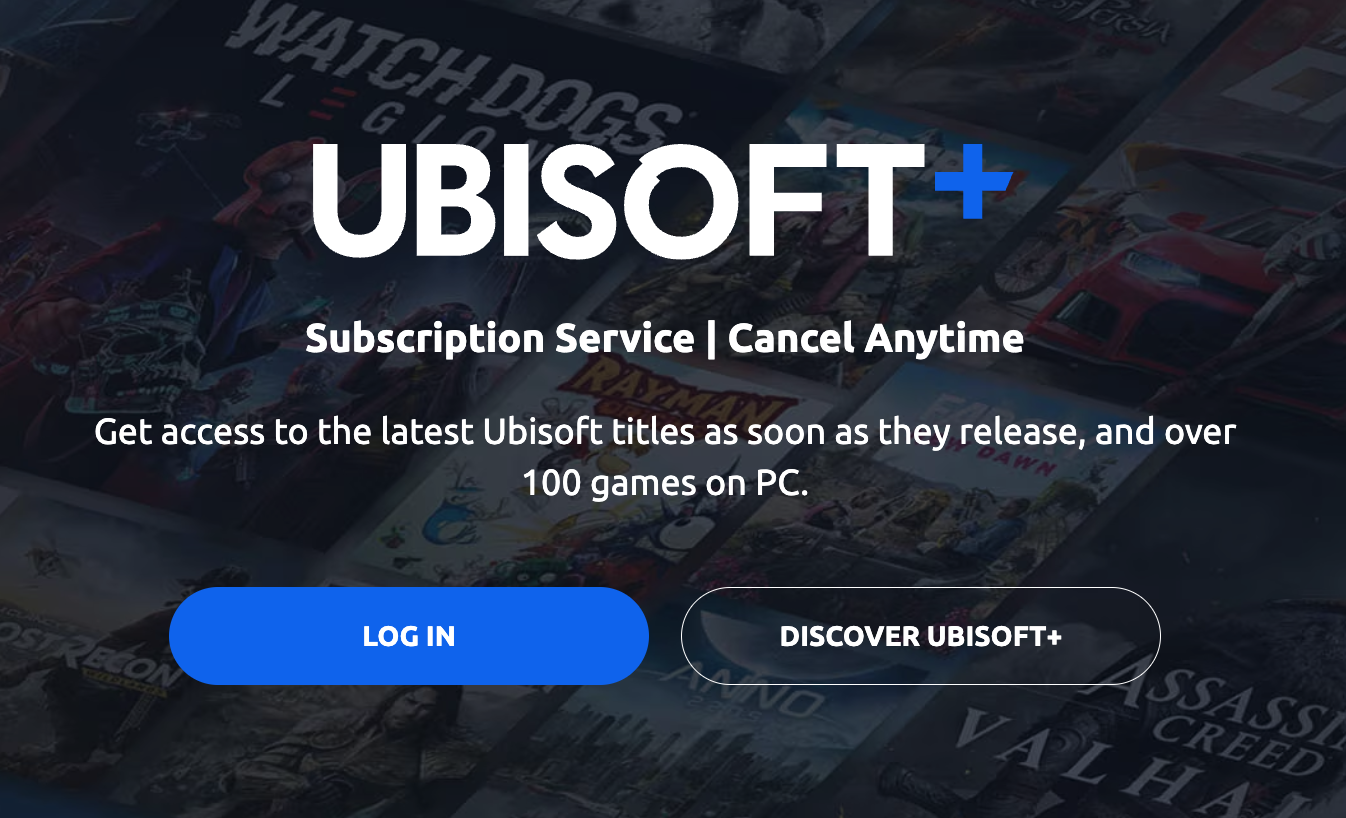
- But audiences aren’t mad because Ubisoft has a subscription service with streaming options.
- Of all of the various offerings in that field, only Amazon Luna is talked about less in the general conversation.
- But when Ubisoft Director of Subscriptions Phillippe Tremblay sat down to talk about the changes to the service and the wider strategy at Ubisoft, that’s where things began to spiral.

- We’ll summarise briefly:
- Ubisoft+ has had “millions” of subs who’ve played over half a billion hours of gameplay.
- Multiple behaviour models, some folks sign up and then just play forever, many come to try one game for a month and then buy the game.
- Ubisoft like having their own service compared to just being on Gamepass or PS+ because it means they can share games across any platform.
- Then we get to the important part - interviewer Christopher Dring steers the feature in the direction of the wider subscription model push in various industries.
- How games haven’t necessarily gone as hard into subscriptions in the way that music or film or TV have.
- From Tremblay’s perspective, there’s two elements to this.
- Ubisoft+ had it’s biggest month in October 2023, it’s still growing, “with one in ten Ubisoft+ subscribers never having engaged with the company’s games before.”
- But that this all comes down to offering players a choice - as Ubisoft has to cater to folks who want to buy and those who don’t:
"The point is not to force users to go down one route or another," he explains. "We offer purchase, we offer subscription, and it's the gamer's preference that is important here. We are seeing some people who buy choosing to subscribe now, but it all works."
- Then we come to the smoking gun, a question asked of the Director of Subscriptions for Ubisoft about what the potential of the subscription model could be.
- Would you believe he thinks that the field his job exists because of will continue to grow?
- This is where the headline grabbing quote comes from - about “feeling comfortable not owning your game.”
- He is specifically speaking on an industry wide level about what sort of audience shift would have to happen for the subscription model to overtake the digital or physical models - in the way they have broadly done for Film/TV/Music industries.
"One of the things we saw is that gamers are used to, a little bit like DVD, having and owning their games. That's the consumer shift that needs to happen. They got comfortable not owning their CD collection or DVD collection. That's a transformation that's been a bit slower to happen [in games]. As gamers grow comfortable in that aspect… you don't lose your progress. If you resume your game at another time, your progress file is still there. That's not been deleted. You don't lose what you've built in the game or your engagement with the game. So it's about feeling comfortable with not owning your game.
- It’s a response of what would have to happen - not a command or warning to audiences.
- Because the context for that quote is that he’s looking at the growth of Playstation and Xbox subscriptions, he’s looking at Ubisoft’s subs on PC - and seeing that subscriptions aren’t being adopted at a rate that will replace purchases.
when you look at the different subscription services that are out there, we've had a rapid expansion over the last couple of years, but it's still relatively small compared to the other models
- Does Ubisoft’s Director of Subscription want you to subscribe to his subscription service?
- Of course he does.
- That’s how he gets paid.
- But what’s actually newsworthy here is that it’s not happening yet.
- Audiences seemingly are reticent to switch over - especially in a way where this will be a trend of parallel importance to just buying games.
- That’s great news!
- If the people who stand to benefit most from this push have to realistically acknowledge that they will need a fundamental audience shift to actually take over - then that’s great for people who don’t want a rental model to represent the only way to play games.
- People like Larian CEO Swen Vincke - who see the idea of a centrally controlled subscription model as a threat to developers being able to directly reach audiences.
- And where subscription friendly games are by definition more desirable and therefore publisher supported over non-subscription friendly games.
There is nothing wrong with that but it may not become a monopoly of subscription services. We are already all dependent on a select group of digital distribution platforms and discoverability is brutal. Should those platforms all switch to subscription, it’ll become savage.
— Swen Vincke @where? (@LarAtLarian) January 17, 2024
TLDR ; you won’t find our games on a subscription service even if I respect that for many developers it presents an opportunity to make their game. I don’t have an issue with that. I just want to make sure the other ecosystem doesn’t die because it’s valuable.
— Swen Vincke @where? (@LarAtLarian) January 17, 2024
The Non Subscription Model
- Unfortunately though - just because the sub model isn’t being adopted at speed doesn’t mean that things are somehow better as they are currently.
- Because when we talk about ownership and preservation, we know that Ubisoft of all people aren’t capable of protecting these games in a way that actually means anything.
- No subscription model required for that.
- That’s why every few months another one of their services ends online support - and where those games are multiplayer based, they’re delisted entirely!
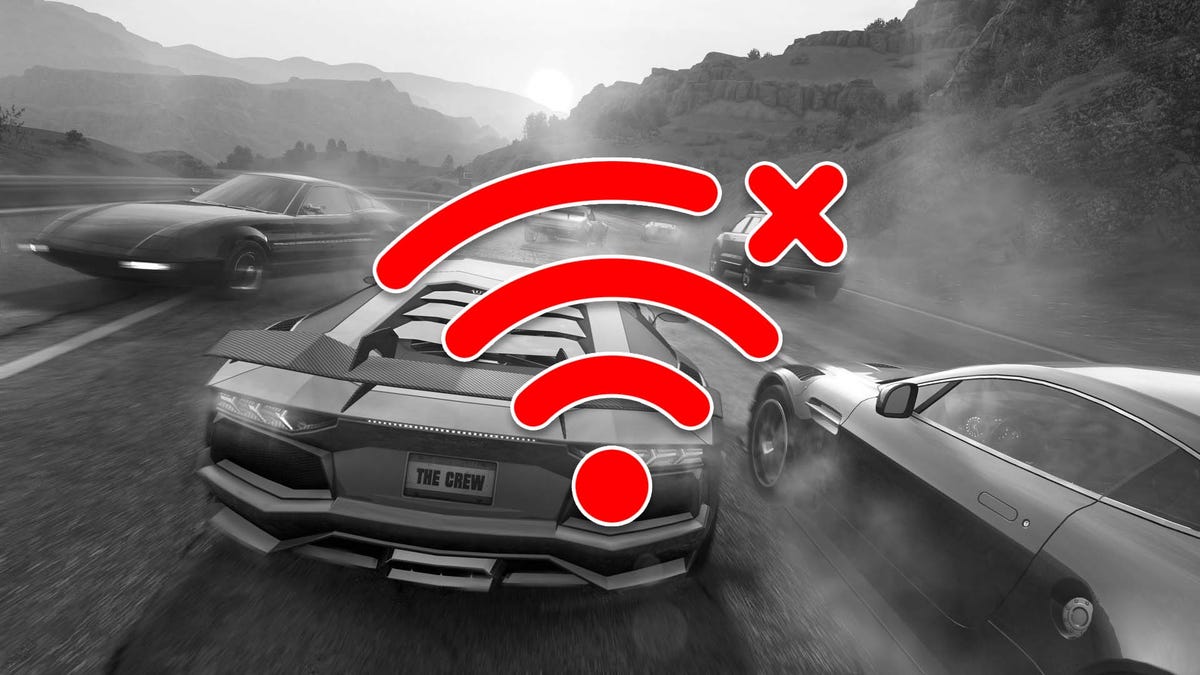
- With The Crew, Ubisoft somehow even managed to delist the game from sale before the announcement of that delisting was made.
- Multiplayer games (without player hosting) and Digital games have always been a risk towards ownership - and towards the libraries of audiences.
- For as much as Steam tout their kill-switch to make everyone’s libraries available if they ever have to close the service, they also have the ability to end your access to every license in that library if you breach their EULA.
- The fact that we’re now moving towards a console future where disc drives are optional is just another aspect of this too.
- With the PS5 Slim’s optional drive even needing to be paired with the console before use, and the Series S being explicitly pitched as a discless console.
- You don’t need to wait for Subscription models to take over to be concerned about your ownership of games.
- It’s already here.
- But what of the remaining stalwarts in the physical space?
- It’s not looking great there either.
- We’ll take a case study of this - in the UK, due to a series of mergers and corporate decision making, we really have only one nationwide game seller that’s not also a supermarket or department store.
- Game
- In recent years, due to a lack of interest and side effects of those mergers, they’ve been forced to devote more and more shelf space to toys, merch and other game related products.
- As of this week - Game have announced that they will no longer be accepting pre-owned or second hand titles for re-sale.
A few GAME staff have confirmed this story to me privately.
— Ryan T. Brown 🎮 (@Toadsanime) January 16, 2024
As I suspected, the reason is primarily due to an abundance of existing preowned stock that simply isn't shifting anymore. Trade-ins have plummeted anyway, but they can't expect to sell what does come in anymore.
- The why is pretty simple.
- Physical game sales aren’t happening at scale - a trend that was galvanised by the pandemic and hasn’t slowed down.
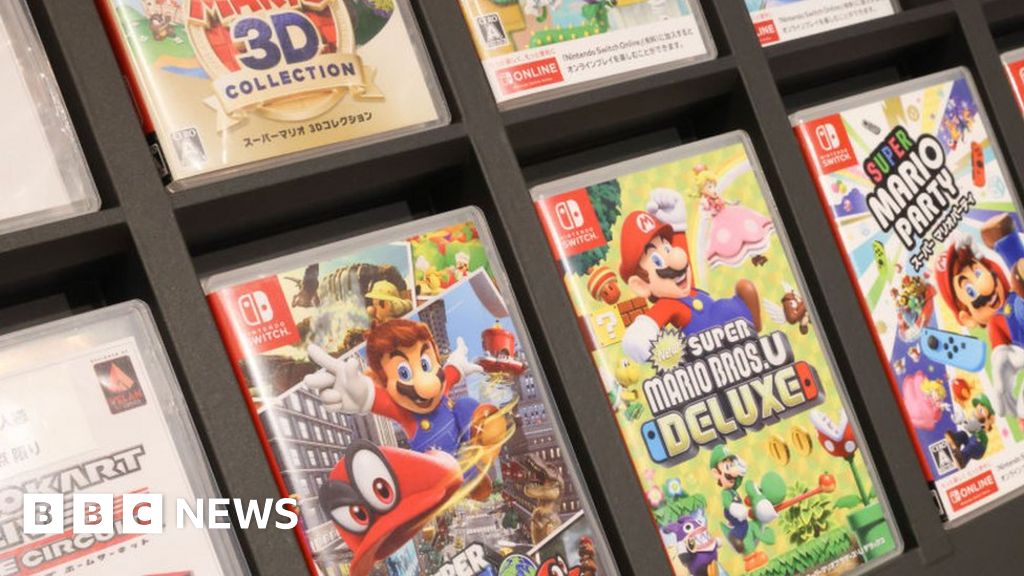
- There are less physical sales because of convenience, quality, price - and even sheer access to digital games for audiences with improving internet.
- There are therefore less games to trade in for re-sale.
- But also games cost more overall now - so the days of being able to get 4 second hand AAA games for £20 is long gone.
- Wanting to trade in your premium game for basically nothing is a hard sell.
- And anything that’s traded in will get you less than it would have back then as well - if only because a new game is now £70 rather than £40.
you just had to be there 🥹 pic.twitter.com/huWKangE5i
— Sal (@salvahed) January 16, 2024
- It all ultimately raises a question of value for audiences - and how those trends are changing.
- Ubisoft think that there’s value in offering people an $14 sub that means people can effectively play a brand new game over the course of a month - but also that people will pay $50 to $70 for the privilege of owning that game.
- Subscription models mean you can play more games than ever - and per some sources like No More Robots, it means sales for their games are better and reaching a wider audience than ever - but how long can that scale, and what happens when it starts to influence how games are made and sold?
- In the hardware space, Xbox and Playstation are looking at their audiences and seeing that if they want a physical disc drive - they’ll be willing to pay a surcharge on top.
- Preservation and ownership as premium bonus feature.
- And in physical spaces - audiences are holding on to the games they do buy, but that population is decreasing over time as convenience and cost win out in the wallets of gamers.
- We’re already in a position where users don’t own their games - or sometimes even the platforms they play them on with the rise of streaming - and we didn’t need subscription models taking over to make that worse.
- But at the very least thanks to Ubisoft we now know that the future where subscription models dominate all sales might not be here yet.





